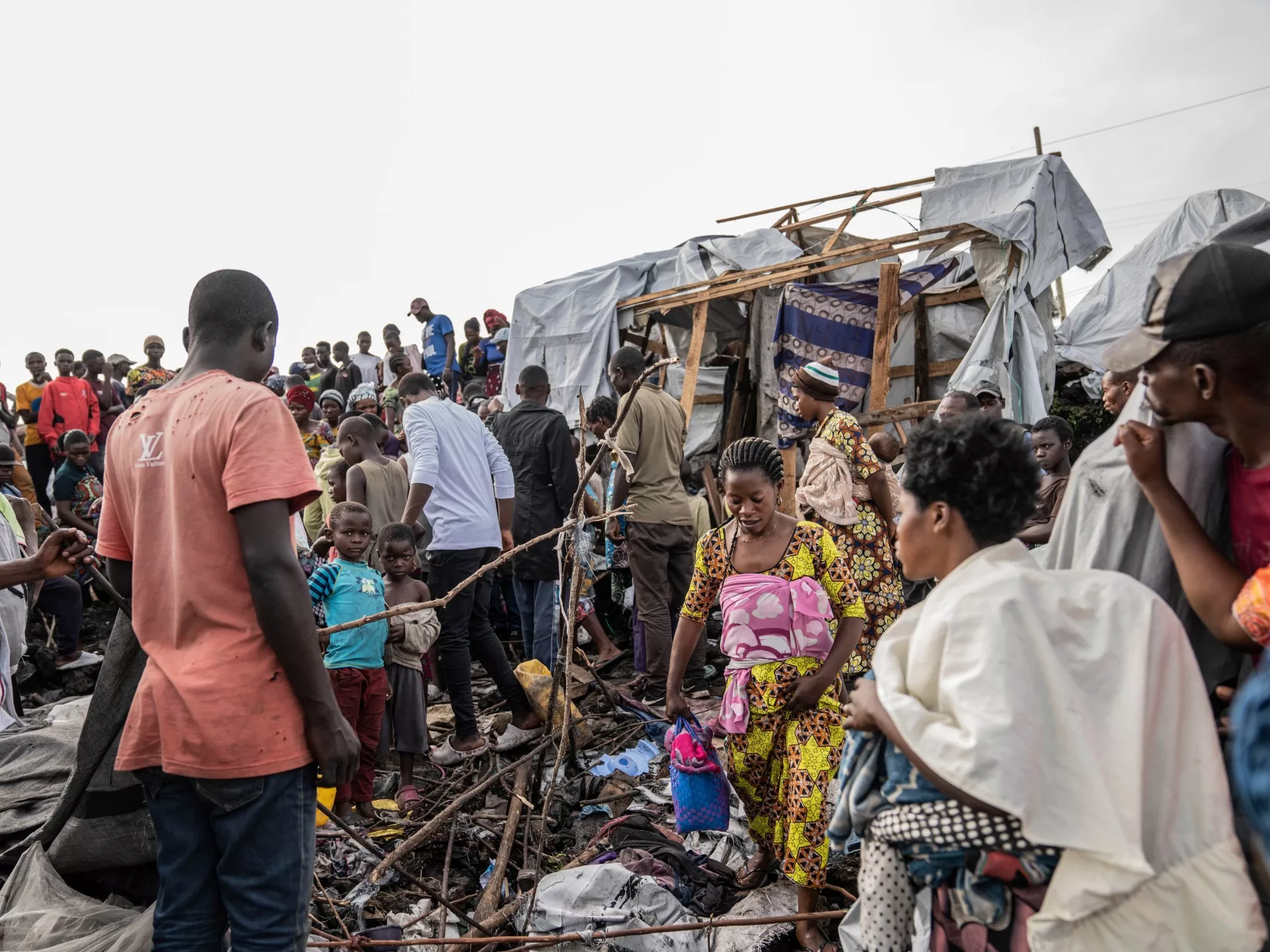Friday’s explosions targeted the camps in Lac Vert and Mugunga, near the city of Goma, the capital of North Kivu province, the UN said in a statement.
The attacks, in which at least 20 people were injured, were a “flagrant violation of human rights and international humanitarian law and may constitute a war crime”, it said.
A resident of one of the camps told Al Jazeera that many of the victims were sleeping in their tents when the area was attacked.
“We started running as the bombs were fired at the camp,” the resident said.
The Congolese military and the United States accused the military in neighbouring Rwanda and the M23 rebel group of being behind the attacks.
On Saturday, Rwanda denied the US accusations as “ridiculous”.
Government spokesperson Yolande Makolo said the Rwanda Defence Force (RDF) is a “professional army” that would never attack displaced people. In a post on X, Makolo instead blamed the assault on militias supported by the Congolese military.
Lieutenant-Colonel Guillaume Njike Kaiko, a spokesperson for the DRC’s army in the region, said the attacks were retaliation for earlier DRC strikes on Rwandan army positions in which arms and ammunition were destroyed.
In a social media post, government spokesperson Patrick Muyaya also blamed the M23, which has taken over swaths of North Kivu in the last two years.
The DRC, the UN and Western countries have said Rwanda is supporting the group in a bid to control mines and mineral resources. Rwanda has denied the allegations.
Al Jazeera’s Fintan Monaghan reported that the shells were fired from an area controlled by M23.
The group denied any role in the attacks and instead blamed DRC forces, in a statement posted on X.
The intensifying fighting in eastern DRC has forced hundreds of thousands of civilians to flee neighbouring towns towards Goma, which is located between Lake Kivu and the Rwandan border and is largely cut off from the country’s interior.
International charity Save The Children said it was present at one of the camps when shells struck close to a busy marketplace. It said dozens were injured, mostly women and children, and the final death toll remained unclear.
“A tent does not offer much protection from shelling,” said Greg Ramm, the aid group’s country director in the DRC.
“Protection of civilians, especially children and families living in displacement camps, must be prioritised,” he said, and called for “all parties to the conflict to end the use of explosive weapons in the proximity of populated areas”.
President Felix Tshisekedi, who was travelling in Europe, decided to return home on Friday following the bombings, a statement from his office said.
Tshisekedi has long alleged that Rwanda is destabilising DRC by backing the M23 rebels.
The bombings follow the group’s capture of the strategic mining town of Rubaya this week. The town holds deposits of tantalum, which is extracted from coltan, a key component in the production of smartphones.
Condemning the attack, US Department of State spokesperson Matthew Miller said it was “essential that all states respect each other’s sovereignty and territorial integrity”.
The U.S. strongly condemns the attack today from Rwanda Defense Forces and M23 positions on the Mugunga camp for Internally Displaced Persons in eastern Democratic Republic of the Congo. It is essential that all states respect each other’s sovereignty and territorial integrity.
— Matthew Miller (@StateDeptSpox) May 3, 2024
The DRC branch of the medical charity Doctors Without Borders (Medecins Sans Frontieres, or MSF) said its teams had to stop distributing essential items and halt medical consultations on Friday because of the rising insecurity.
Earlier today in Goma, DR Congo:
As our teams were conducting medical activities & distributing shelter kits, intense fighting erupted in the immediate vicinity of IDP camps.
We heard heavy artillery which landed in densely populated areas. Several people were reportedly… pic.twitter.com/zaEWn3prvX
— Doctors w/o Borders (@MSF_USA) May 3, 2024
In a post on X, the group condemned the “increasingly regular use of heavy artillery” close to sites for internally displaced people around Goma.
French President Emmanuel Macron said Rwanda must halt its support for M23, during a joint news conference with Tshisekedi in Paris this week.
About six million people have been killed since violence erupted in 1996. It has also displaced about seven million people, many beyond the reach of aid.
